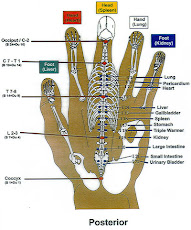Acidum acetyl-salicylicum


...plenty of people are still taking aspirin nowadays because it has enjoyed a remarkable career in cardiovascular prevention.
There's wide agreement that if you have had a heart attack or stroke, taking low doses of aspirin on a regular basis (daily or every other day) will reduce the likelihood of having another one. Research has also shown that a low-dose aspirin habit reduces the risk of a first-time heart attack or stroke, although the way the risk-benefit math works out, only people who have a number of risk factors for cardiovascular disease are advised to take aspirin.
~~
It appears that with each passing year Acetyl-Salicylic Acid (ASA), commonly referred to as Aspirin, has found another important use in medicine. But what is fact and what is still questionable? Today thousands of people over 60 years of age are taking ASA daily to prevent heart attack. Others use it who have already suffered a coronary attack, or following bypass surgery, angioplasty or suffer from the pain of angina.
Aspirin decreases the risk of heart attack by keeping the blood well-oiled and less likely to form a fatal blood clot. There's little doubt that it's one of the greatest therapeutic bargains of all time.
Recent studies also suggest that lower doses of ASA (75mg) a day may be as effective as larger doses in treating these conditions.
The American Heart Association reports that doctors should consider advising ASA for middleaged people with a family history of heart disease. Or for those with high risk factors such as being 20 percent overweight, smoking, a high cholesterol, hypertension and lack of exercise.
Can ASA be of help in preventing cancer? Several studies suggest that this may be the case.
For instance, a report in the prestigious New England Journal of Medicine suggests that longterm use of ASA can decrease the risk of large bowel malignancy.
~~
Studies have shown that taking a low-dose aspirin every day significantly lowers the risk of heart attacks. Aspirin can benefit people at high risk of a heart attack, such as those with diabetes and other risk factors such as high blood pressure. It can also help people with diabetes who have had a heart attack or a stroke, or who have heart disease. However, aspirin's effects have not been studied in people under age 30.
~~
OBJECTIVE: It has been reported that aspirin and other non-steroidal anti-inflammatory drugs (NSAID) may protect against dementia of Alzheimer's type and/or vascular dementia. However, co-morbidity and the dose of aspirin may be critical. A major indication for low-dose aspirin is prophylaxis after stroke and transient ischaemic attacks, conditions that may obscure an anti-dementia effect by the drug. Alternatively, low-dose aspirin may be insufficient if the protective effect is due to an anti-inflammatory mechanism. The aim of this study was to assess whether high-dose or low-dose aspirin may protect against Alzheimer's dementia in subjects aged > or =80 years. For comparison, effects of (other) NSAID, paracetamol and D-propoxyphene were studied.
METHODS:
Global, cross-sectional, and longitudinal (1991-2000) epidemiological analyses of clinical, cognitive and drug treatment data on 702 individuals 80 years old or more (351 twin pairs of same sex), all alive at inclusion: mean age 83.9 years (80-99 years). Calculations were made with logistic regression of associations between use of various analgesics and cognitive function, after adjustment for age, gender, and cardiovascular and cerebrovascular diseases.
RESULTS:
Users of high-dose aspirin had significantly lower prevalence of Alzheimer's dementia and better-maintained cognitive function than non-users. There were numerically similar but not significant associations with use of low-dose aspirin and other NSAID. There were no such associations with use of either paracetamol or D-propoxyphene.
CONCLUSION:
Aspirin might protect against Alzheimer's disease, but controlled trials are warranted.
~~
Low-Dose Aspirin May Protect Against Colorectal Cancer
September 21, 2010 — Low-dose aspirin (75 mg/day) may protect against colorectal cancer, according to the results of a case-control study reported online September 15 in Gut."Previous studies have shown that aspirin and other non-steroidal anti-inflammatory drugs (NSAIDs) lower colorectal cancer (CRC) risk," write Farhat V. N. Din, from the University of Edinburgh, Edinburgh, United Kingdom, and colleagues. "However, the lowest effective NSAID dose, treatment duration, and effects on survival are not defined. In a large population-based case-control study, we have explored the relationship between NSAID dose and duration, CRC risk and overall CRC-specific survival."
The study sample consisted of 2279 patients with colorectal cancer and 2907 control subjects who completed food frequency and lifestyle questionnaires. NSAID use was defined as taking more than 4 tablets per week for more than 1 month and was classified as low-dose aspirin (75 mg), nonaspirin NSAIDs, and any NSAID. Logistic regression models allowed calculation of odds ratios (ORs) with adjustment for potential confounding variables, and log-rank tests and Cox hazard models allowed estimation of the effect of NSAID use on all-cause and colorectal cancer-specific mortality.
~~
In some people, aspirin can irritate the lining of the stomach, resulting in pain, nausea, vomiting, or bleeding. You should avoid taking aspirin if you have any of the following conditions: - Allergy to aspirin
- Tendency to bleed
- Recent bleeding from your digestive tract
- Active liver disease
- Under 21 years of age
~~

















